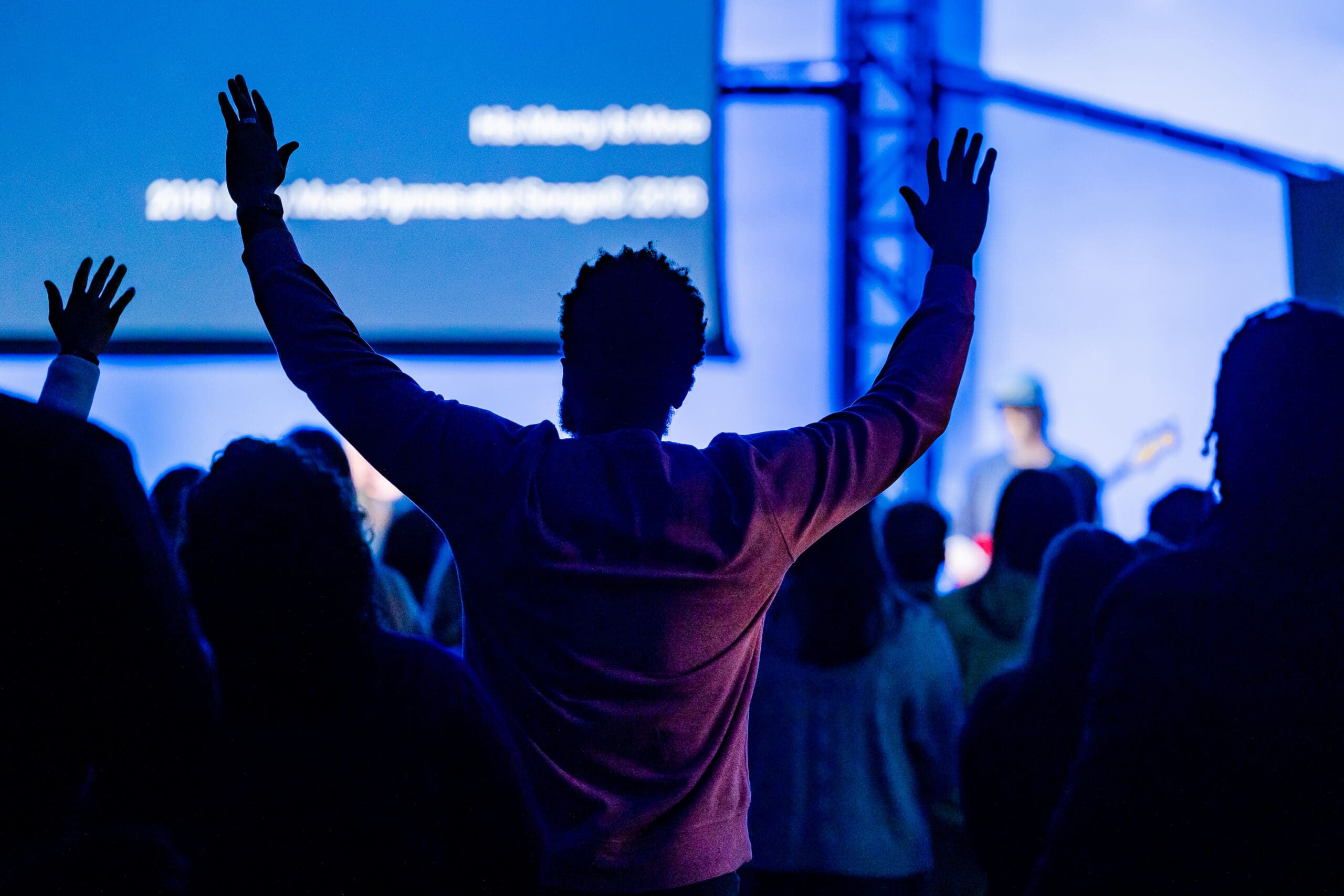African Americans originally celebrated Juneteenth in our country, and now everyone celebrates it! How beautiful is it that we can celebrate together as a church that values the pursuit of multicultural unity? We celebrate God as he brings people from different cultures and backgrounds together under the name of Jesus! In its second year as a national holiday, we want to pause and thank God that institutions like slavery do not exist anymore in America. Juneteenth highlights that God can take broken things and redeem them, and He’s doing that holistically with His Church. We celebrate moments like this and others where dignity is being extended to God’s image bearers (Genesis 1:27). While we do not expect the state to operate by our Christian convictions, we should nonetheless pause and be thankful to God for times like this where dignity owed to image bearers, robbed from them by sin, is being restored in the public square. Let’s pray that even more dignity will be restored for image-bearers in our country and worldwide. As a church that values pursuing multicultural unity under Jesus’ name, we wrote this article to clarify why we hold this value and to challenge you to take your next step in pursuing multicultural unity.
What does it mean to value the pursuit of multicultural unity?
It is an aspirational value, meaning it describes who we want to be more than who we are presently. If you are a believer, you are likely familiar with the tension between who you are and who you are striving to become – it doesn’t happen overnight! It takes time.
It is an aspirational value, meaning it describes who we want to be more than who we are presently.
As a church, we are asking God to help us pursue multicultural unity because, ultimately, God tells us through His Word that His church is for all people. When functioning as God intended, people from different backgrounds, cultures, and ethnicities within the Christian community see the finished work of Jesus on the cross as their unifier and praise God for the ways he has uniquely created each person. Ethnic and cultural differences are not tools to bring division but, instead, are opportunities to learn and rejoice in how other brothers and sisters have been uniquely created in the image of God.
Multicultural unity is not:
- Meant to make those in the majority culture feel guilty for being in the majority
- About making the BIPOC (Black, Indigenous, and Other People of Color) feel special
- A pass to ignore racial, ethnic, and cultural differences or pretend like they do not exist (i.e. claiming colorblindness when referring to the racial identity of others)
- Strictly a “black-and-white” thing
- Secular influence on our church’s values
Pursuing multicultural unity does not mean there will never be disagreements, disappointments, or misunderstandings across cultural lines, but it does call us to work through these disagreements, not around them. In Ephesians 4:1-6, the apostle Paul tells us, “Therefore I, the prisoner in the Lord, urge you to walk worthy of the calling you have received, 2 with all humility and gentleness, with patience, bearing with one another in love, 3 making every effort to keep the unity of the Spirit through the bond of peace. 4 There is one body and one Spirit — just as you were called to one hope at your calling — 5 one Lord, one faith, one baptism, 6 one God and Father of all, who is above all and through all and in all.”
Where do we see multicultural unity in scripture?
We see multicultural unity in the description of the kingdom to come. In the new creation, there will be a redeemed multitude of multicultural, multiethnic, multilingual people united around the throne of Jesus and singing praises to God the Father. Revelation 7:9 says, “9 After this I looked, and there was a vast multitude from every nation, tribe, people, and language, which no one could number, standing before the throne and before the Lamb. They were clothed in white robes with palm branches in their hands. 10 And they cried out in a loud voice: Salvation belongs to our God, who is seated on the throne, and to the Lamb!”
In the new creation, there will be a redeemed multitude of multicultural, multiethnic, multilingual people united around the throne of Jesus and singing praises to God the Father.
Revelation 7:9 points to what will happen in the new creation, but even while Jesus was ministering on earth, he prayed for the earth to be as it already is in heaven. In John 17:20-23 he says, “I pray not only for these, but also for those who believe in me through their word. 21 May they all be one, as you, Father, are in me and I am in you. May they also be in us, so that the world may believe you sent me. 22 I have given them the glory you have given me, so that they may be one as we are one. 23 I am in them and you are in me, so that they may be made completely one, that the world may know you have sent me and have loved them as you have loved me.”
Later, after Jesus’ resurrection, during an annual festival in which Jews from around the world with different ethnicities, languages, and cultures would gather in Jerusalem, the Holy Spirit descended among the people, and they all miraculously spoke in each other’s languages (Acts 2:1-21). Despite their diversity, they found true oneness in the presence of the Holy Spirit because of the resurrected Christ. It’s important to recognize that scriptural references to multicultural unity aren’t limited to the New Testament. The experience of Pentecost was actually prophesied by the Old Testament prophet Joel in Joel 2:28-29, “And it shall come to pass afterward, that [God] will pour out [his] Spirit on all flesh; your sons and your daughters shall prophesy, your old men shall dream dreams, and your young men shall see visions. Even on the male and female servants in those days, I will pour out my Spirit.”
How is multicultural unity part of God’s mission for the local church?
From creation to new creation, God always planned to redeem a multicultural people to himself. Not only is multicultural unity God’s plan, but he made way for it to happen when He sent Jesus to earth! Jesus died to reconcile the church to God and one another (2 Corinthians 5:16 -19). As a local church, we believe in this ministry of reconciliation and in pursuing what has already been accomplished in heaven – unity under the name of Jesus. How we pursue unity on this side of heaven is our demonstration to the lost world that Jesus is who he says he is. We pursue multicultural unity because it is kingdom work.
We pursue multicultural unity because it is kingdom work.
True multicultural unity only happens when the glory of God becomes the goal, not just accomplishing a diversity initiative or hitting a target metric. Therefore, pursuing multicultural unity for our church is more than simply having multicolored services (which is important). But our goal is to teach you to honor God by living cross-cultural lives.
How do we actively pursue multicultural unity at Mercy Church?
For our church, the pursuit of multicultural unity is a joint endeavor that requires both a congregational and individualistic effort. From a congregational standpoint, we aim to be a place where all ethnic groups can influence the church’s major and minor decisions. We want to be a church where redemptive cultural expressions are not just tolerated but embraced. We want our members to feel that everyone in the body has a sense of ownership over this pursuit because we are one body—distinct but unified. When this happens, the outsiders/non-believers will witness the love that God’s people have for one another despite their differences, and the result is that God’s love is demonstrated in a powerful way that causes the lost world to marvel at Him! In John 13:34-35 Jesus commands us, “34 I give you a new command: Love one another. Just as I have loved you, you are also to love one another. 35 By this everyone will know that you are my disciples, if you love one another.”
Ultimately, multicultural unity is an important part of our church’s vision here in Charlotte. Our vision is to see a gospel awakening in the city of Charlotte that is carried to the ends of the earth. Charlotte continues to grow into one of the nation’s most racially and culturally diverse cities, and the congregation of Mercy Church within Charlotte has the opportunity, if God allows, to reflect that same diversity.
Our vision is to see a gospel awakening in the city of Charlotte that is carried to the ends of the earth.
As America evolves into a truly diverse nation, enriched by ethnic minorities and immigrant communities, our church has a special role to play. We can serve as a haven for people from all backgrounds, offering guidance to the corporate American and showcasing unity despite our differences, causing others to marvel at Jesus because of the unity of his church.
Let’s Get Practical
Beginning and continuing the process of living a cross-centered, cross-cultural life is part of your discipleship here at Mercy Church. So, one way we’d like to challenge you to grow in this area is to consider having cross-cultural conversations with someone from another culture.
These conversations will break down barriers while offering learning opportunities from different perspectives. They will eliminate the fear that we are being perceived in a certain way. They will enrich our understanding of others and allow us to view the world through a diverse lens. Romans 12:16 reminds us to “Live in harmony with one another. Do not be proud; instead, associate with the humble. Do not be wise in your own estimation.” We desire that these conversations will be the first of many. To pursue unity, we have to make an effort.
Start with someone you already have relational capital with. Who do you know from another culture who would feel comfortable grabbing coffee or dinner with you? It is okay to express why you’re asking them to meet with you. Let them know you want to learn more about their culture. Do not expect them to teach you everything about their culture or view them as that culture’s spokesperson. Ask questions with genuine curiosity and humility. Pray together to open and close your conversation. We provided some starter questions below and guidelines for you to begin these conversations.
Tips for Listening:
- Pray before you meet.
- Lead with empathy.
- Listen before you speak – the point of listening is to understand before you are understood.
- Fight against being offended – this comes with the territory.
- Fight your biases. Remember, we all have them.
Suggested Questions to begin with:
- Tell me what it is like to walk in your shoes.
- What does it mean to be… (enter culture or ethnicity)?
- What are some things about your culture/ethnicity you are proud of?
- What is considered most respectful/disrespectful in your culture?
- What would you say is the most commonly held misconception about people of your culture or ethnicity?
- What are some things you see in your culture that do not align with kingdom values?





